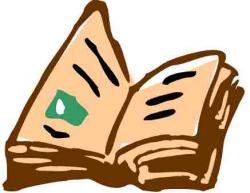
The First of January 1959, marked, with the strength of a hurricane, the most radical change in Cuban history. Not only the dark years of Batista tyranny were left behind, the sounds of the police cars in the cities, the uncertainty of the families in front of the destiny of the girl or boys, who left home before dark and had not return by the dawn, the clandestine tuning of Radio Rebelde to know how much had advance the rebel forces in east and central Cuba. Not only were the prison opened, the car horn sound, the hug multiplied and the women dressed in red and black. Not only Fidel assured in Santiago de Cuba the treacherous media plot and Che secured in Santa Clara the last bastion of the dictatorship and Camilo was preparing to take the Columbia military barracks.
The first of January 1959 was truly a turning point: for the first time in history most of the Cubans had the chance of owe its own destiny and not only the destiny of the nation, but the small and great destiny of each one.
Some, the most, trust and bet for the change, becoming even stars of the coming times, sharing sacrifices and suffering heartbreaks, because, as it is known, a Revolution has never been an abstraction, but a difficult and complex reality, others, the few, lost positions and privileges, stir fears up and, sooner or later, left the island. A select group of them, on both sides, were interviews two decades later by Luis Baez, a famous veteran journalist for his abilities in the genre, the author of important works, such as El mérito es vivir (The merit is to life), Miami: donde el tiempo se detuvo (Miami: where the time stopped), Absuelto por la historia (Absolved by history) and Secretos de generales (Secrets of Generals).
These interviews were pblished separately in two books: Los que se fueron (The ones who left)(1991) and Los que se quedaron (The ones who stayed) (1993).To put tem together in a unique volume, enriched by new contributions, allows the reader to get a singular perspective of different arguments. A common denominator in the sharp and fluid questions made by Luis Baez, is the prominence of their public life in the times of the triumph of the revolution. However, while not a few of the ones who stayed had motives to think in a golden exile, some of the ones who left could have stayed with us. Such contradictions and the self critic judgement of each choice, make out of these conversations an exhibition of the diversity and paradox of human soul.
Once Luis Baez defined his ethic as an interviewer. "I do not cheat, from the first page, anybody reads, he understands that Im a revolutionary journalist, who is not ashamed of his political affiliation and I use the words of the dictionary to say what I think. You can find over there books, where the author does juggling not to mention the socialism or the revolution, with an embarrassing attitude. From an evident political objective, I try to win readers without any tricks".
The position has opened Luis Baez some doors, that otherwise would have been inaccessible. The rest is due to his implacable questions, the previous knowledge of the personalities and the precision with which he the agility of the dialogue to the journalist prose.
Curiously, one of "the ones who left" - although about him can be said that he never left - was one of the presenters of the book: Max Lesnik.
(
www.granma.co.cu)

Comments